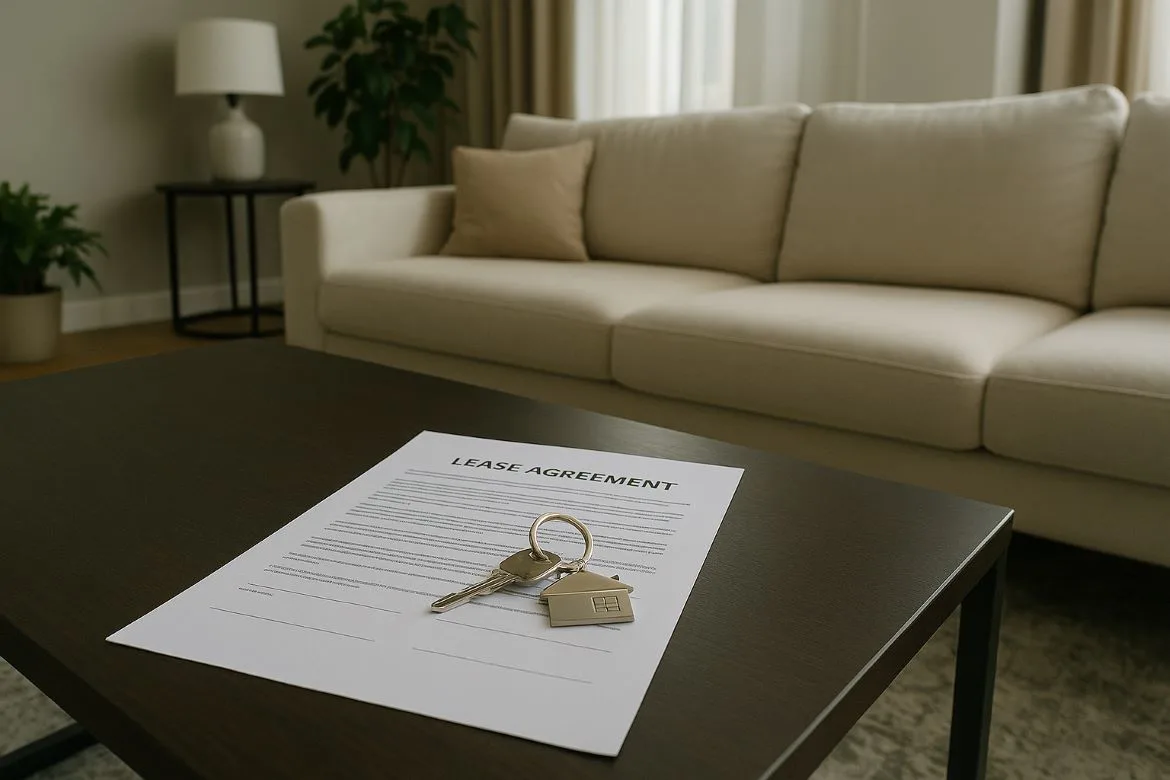Learn how to craft clear and comprehensive lease agreements for luxury homes—covering rent clauses, maintenance, subletting, and more. For landlords, NRIs, expats, and tenants.

Leasing a premium property—whether in South Delhi, Gurgaon, or an upscale overseas neighborhood—isn’t just about location or rent. The real safeguard lies in the lease agreement. For high-value homes, a vague or generic rental contract simply won’t do. Both landlords and tenants (especially NRIs, expats, or luxury homeowners) need clear, well-structured agreements that protect their investment, time, and peace of mind.
Let’s explore best practices that help craft lease agreements that are comprehensive, conflict-proof, and tailored for upscale residential properties.
Every lease should cover the essentials: names, property details, lease duration, rent amount, payment method, and due dates. But for high-value homes, you need to think beyond standard clauses.
Tip: Avoid using a one-size-fits-all lease template. Customize the document for the property's value, usage expectations, and tenant profile. For instance, an expat family renting a large apartment will have very different needs from a young professional in a one bedroom apartment.
Luxury homes are often fully or semi-furnished. Without a written inventory list, both parties may face confusion or disputes at the time of vacating.
What to Include:
Appliances (brand, model, condition)
Furniture (quantity, material, any wear/tear)
Décor (artwork, carpets, mirrors)
Fixtures & fittings (wardrobes, light fixtures, air conditioners)
Electronic goods (TV, washer, water purifiers)
Tip: Attach the inventory as a signed annexure and include photos for clarity. This not only protects the owner’s assets but also assures tenants there won’t be surprise deductions at move-out.
In luxury rentals, rent escalation is usually expected annually or after two years. But ambiguity here often leads to tension.
Best Practice:
Clearly define when and how the rent will increase—commonly 5 annually or 10?ter two years.
Mention the exact date from which the new rent applies.
State whether the escalation is fixed or negotiable upon renewal.
Tip: For longer-term leases (2+ years), consider tiered escalations or linking rent to inflation indexes for fairness.
Luxury homes come with premium fittings—and their upkeep matters. But who pays when the air conditioner fails or a built-in oven malfunctions?
Clarity here prevents conflicts.
Typically:
Tenant handles: minor plumbing, cleaning, electricity bills, AC servicing.
Landlord handles: structural repairs, major appliance replacement, society maintenance.
Tip: Spell out which appliances are landlord responsibility and how quickly repairs should be handled. Also define the process for emergency repairs if the landlord is unreachable.
Security deposits for high-value homes are often 2–3 months of rent—or more. That makes the exit process critical.
Include:
Timeline for deposit refund (e.g. within 1–7 days)
Conditions for deductions (damages, unpaid bills)
Cleaning/painting obligations upon vacating
Move-out notice period (usually 1–3 months)
Tip: Mention if professional cleaning is expected or if final bills need to be submitted before handover. Transparency helps both sides prepare smoothly for closure.
In luxury housing, subletting without permission is a red flag. Some tenants may also bring in extended family or domestic help, so it's best to define usage limits.
Add clauses for:
Subletting rules (usually prohibited without written consent)
Long-term guests (duration, approval if over a set number of days)
Domestic staff access (registering with security, ID checks)
Tip: If the property is in a gated society, align the lease clauses with RWA/society rules for visitors and staff.
High-end homes often include “white goods” – air conditioners, ovens, fridges, washing machines. But who's responsible for maintaining or replacing them?
Clearly state:
Whether rent includes usage of all appliances
Who handles servicing (tenant or landlord)
Whether common maintenance bills (water, electricity for lift, generator maintenance cost, common area lighting, security guard etc.) are bundled or separate
Tip: Tenants often assume all services are covered—avoid confusion by itemizing what’s included in rent and what’s extra.
For embassies, MNCs, and international tenants, lease terms need tailored language.
Examples:
Early exit clauses for diplomatic relocation
Company signing on behalf of employee
Allowance for rental invoice format, if required for reimbursements
Tip: Many diplomatic contracts ask for a “diplomatic clause,” allowing lease termination with shorter notice in case of reassignment.
Luxury tenants often stay longer—but not if renewal terms are unclear or steep.
Add:
Renewal process and notice timeline
Lock-in period (typically12 months)
Any early termination fee or forfeiture condition
Tip: Avoid vague phrases like “renewable on mutual consent.” Instead, set a clear process: notice, revised rent, and renewal duration.
Ensure the lease mentions governing law and city jurisdiction—this is especially useful if either party is non-resident.
Also mention whether the lease is registered. In most Indian states, leases above 11 months require registration to be legally binding. The stamp duty and registration fee is usually is split equally between both the parties.
Tip: A registered lease offers more legal protection to both parties, especially in high-value disputes.
A luxury home deserves a luxury-grade lease agreement. From inventory to subletting to maintenance, the more transparent and comprehensive your lease is, the smoother the tenancy will be. For landlords, it protects your property. For tenants, it ensures a stress-free stay. Whether you're a homeowner leasing to an expat family, or a diplomat renting a villa in Delhi, don’t underestimate the power of a well-drafted lease.
Looking to lease or rent a high-value home? Make sure your agreement covers everything that matters—clearly, thoroughly, and with foresight. A good lease builds trust, reduces conflict, and ensures a luxury experience for all parties involved.
At House True, we’re not just about property listings—we’re about building trusted relationships. With years of experience and thousands of successful transactions, we specialize in helping clients buy, sell, rent, and lease both luxury residential and premium commercial properties across Delhi NCR.
free consultation